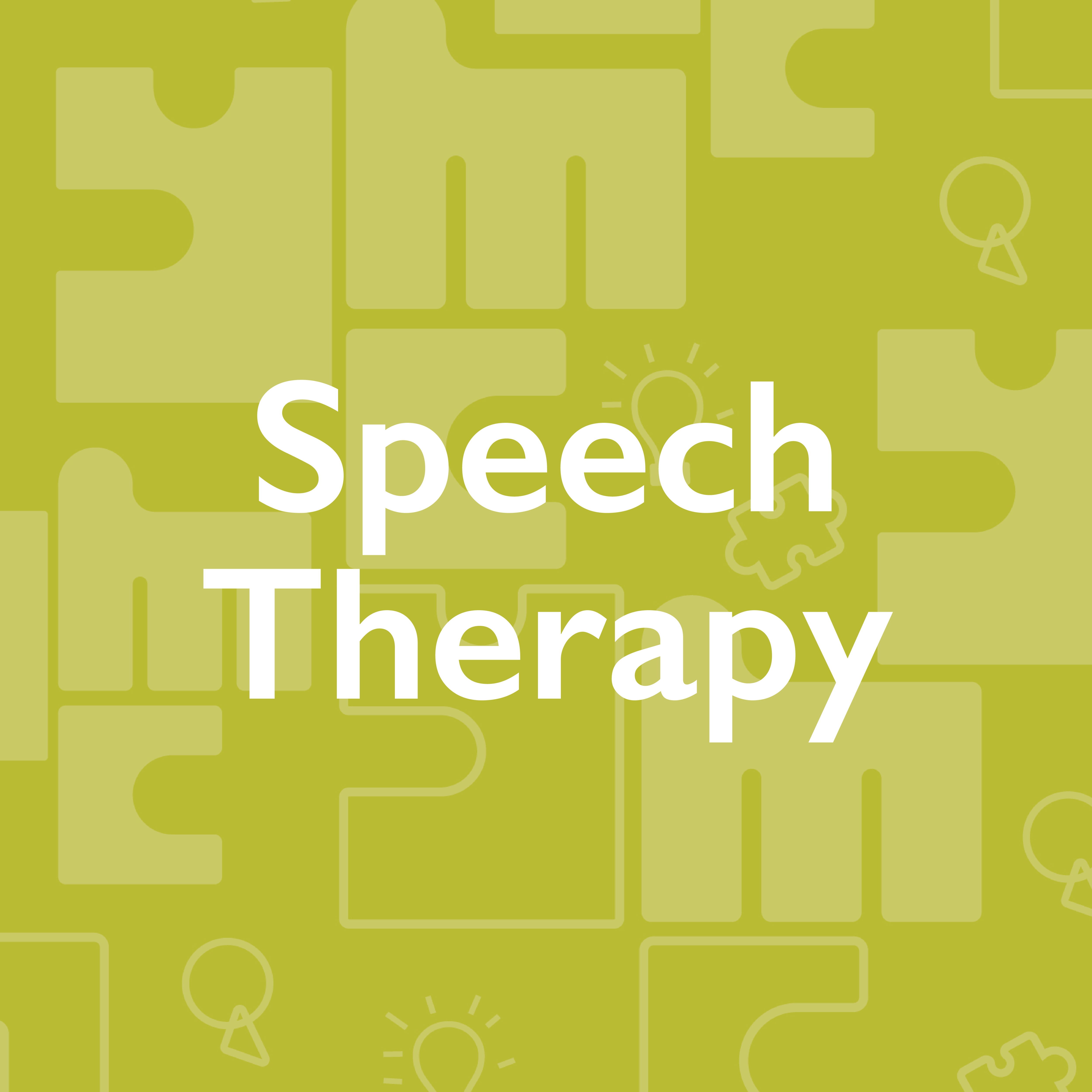


Our Speech-Language Pathologists (SLPs) evaluate, diagnose, and treat speech and language disorders. The overall goal is to help children communicate in more useful and functional ways.
A speech therapy program begins with an evaluation by an SLP to assess the child’s strengths and challenges in the area of speech and language. From this evaluation, the SLP creates a comprehensive, family-centered, goal-oriented plan of care. Examples of the skills that speech therapy may work on include:
Therapy sessions are typically once or twice per week for either 30 or 60 minutes, depending on the needs of each child. The therapeutic plan will also include goals for practicing strategies and skills at home and in other settings. The goal of providing speech therapy is to help your child to improve their abilities to effectively communicate.
We offer group therapy to help children work on goals related to social communication, sensory motor development, strength and coordination, play skills, and emotional intelligence. Speech-language pathologists, occupational therapists, behavior analysts, and behavior instructors work together to lead groups and support development. For information about current groups, call 602-237-6653 or email office@youngmindcenter.org.
For speech therapy services, YMC is currently in-network with BCBS and United. At this time, they are not in-network with any of private insurances or state-funded plans, such as AHCCCS or Mercy Care.